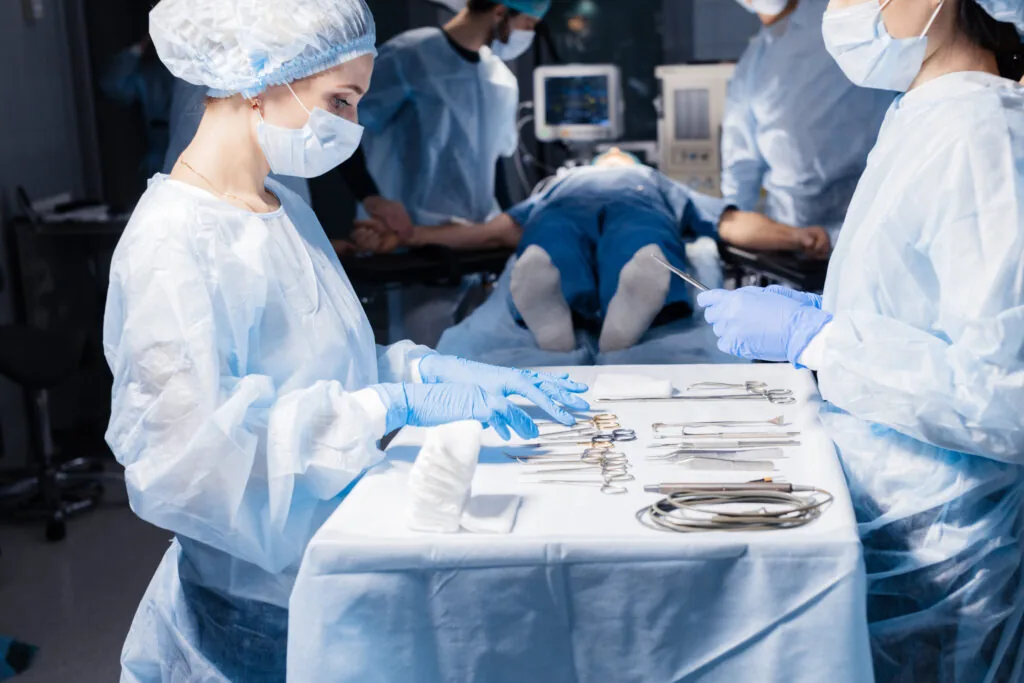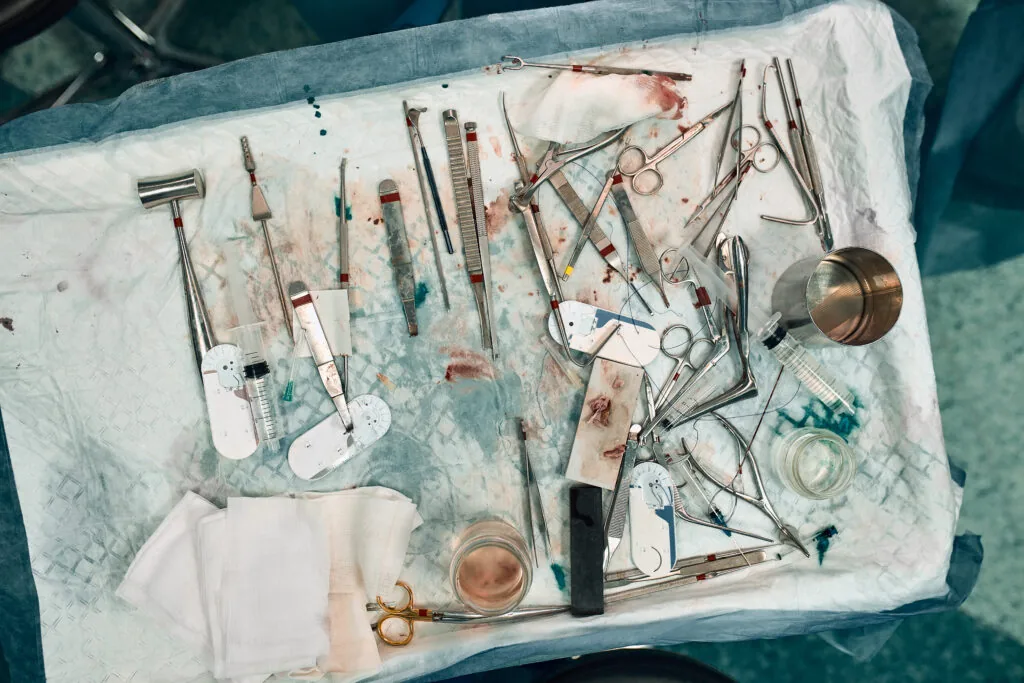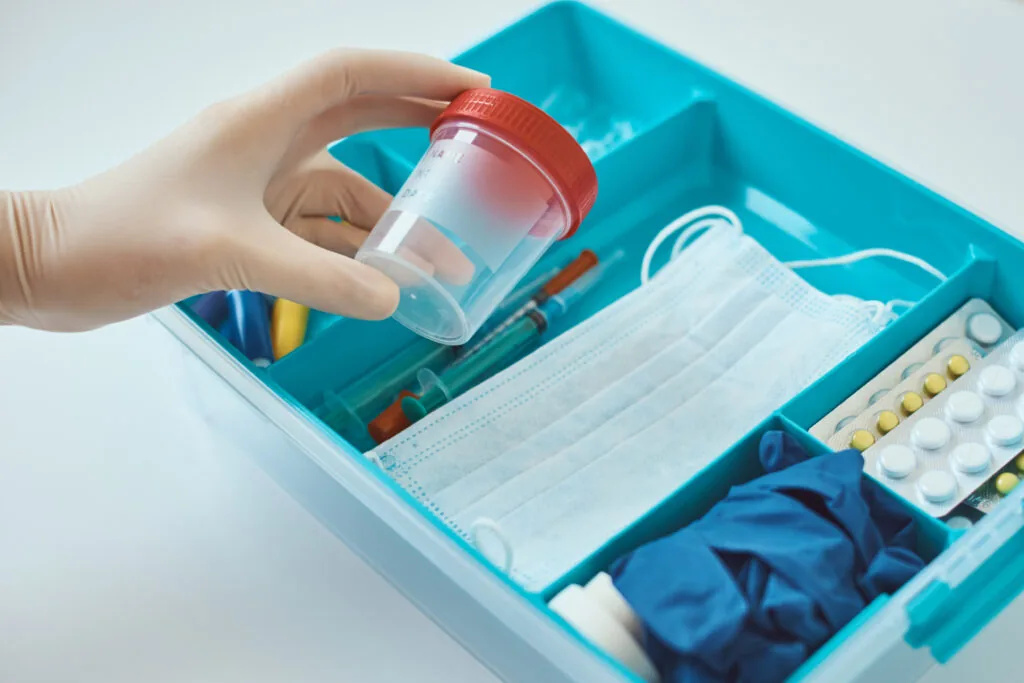Foreign Object Left Inside a Patient During Surgery
Surgical procedures are meant to heal and save lives, but in some unfortunate instances, they can leave lasting damage. One of the most distressing forms of medical malpractice is the retention of a surgical instrument or other items inside a patient. At Blasingame, Burch, Garrard & Ashley, P.C. we specialize in helping victims of medical malpractice, including those injured by retained surgical items (RSIs).
Understanding Retained Objects in Surgery: A Surgeon’s Legal Duty of Care
Surgeons are held to a high standard of care due to the critical and invasive nature of their work. Their legal duty of care requires them to adhere to accepted medical practices and protocols, ensuring they perform surgeries with the utmost precision, competence, and attentiveness.
This includes accurately counting surgical instruments before and after procedures, maintaining a sterile environment, effectively communicating with the surgical team, and closely monitoring patients during and after surgery.
When surgeons fail to meet these standards, resulting in harm to the patient, they may be found negligent and legally liable for medical malpractice. This duty of care is designed to protect patients from preventable errors and ensure their safety and well-being during surgical procedures.

Below are some definitions to help you better understand retained objects:
Retained Object: A general term for any item inadvertently left inside a patient’s body post-surgery.
Retained Surgical Item (RSI): Specific tools and materials used during surgery, such as sponges, needles, or surgical instruments.
Unintended Retained Foreign Object: Broadly includes any object left in the body that should not be there, ranging from medical tools to personal items like jewelry.
Common Examples of Foreign Objects Left in Patients Include:

- Surgical sponges
- Surgical towels
- Gauze
- Screws
- Cotton swabs
- Scalpels or forceps
- Needles or syringes
- Broken instrument parts
- Guidewires
- Forceps
- Scissors
- Needle holders
- Sutures or surgical gloves
- Clamps or retractors
Warning Signs of a Retained Object
If you have had surgery and are experiencing unusual symptoms, it might indicate the presence of a retained object. Common warning signs may include:
- Persistent pain or swelling
- Unexplained fever
- Infection at the surgical site
- Nausea or vomiting
- Abdominal pain or discomfort
- Unusual drainage or discharge
MALPRACTICE ATTORNEYS IN GEORGIA
- What is Medical Malpractice Under Georgia Law?
- Is There Anything Else I Need to Prove?
- How Can I Prove a Medical Malpractice Claim?
- What are Some Common Examples of Medical Malpractice?
- Will a Medical Malpractice Case Take a Long Time?
- Can an Athens, GA Medical Malpractice Lawyer Help?
- Schedule a Consultation with Athens, GA Medical Malpractice Attorneys
Common Injuries When a Retained Object is Left Inside a Person Following Surgery
The retention of a foreign object can lead to severe complications, often resulting in infection and requiring secondary surgery to remove the item. Sometimes an infection leads to sepsis and ultimately, death. Common injuries or issues may include:
- Internal infections or sepsis
- Organ damage or perforation
- Chronic pain and discomfort
- Adhesions and scar tissue formation
- Psychological trauma and stress
- Death
Why Does It Happen?
Retained surgical items can occur due to several reasons. Sometimes it’s because of human error while other times it’s because of inadequate procedures such as a lack of standardized protocols or checklists. Complex surgeries that are a substantial risk or last a long time or emergency surgeries also sometimes lead to items being left inside of a patient. Overworked surgical teams may overlook crucial steps if they are fatigued or the hospital or surgery team is understaffed.
Measures Hospitals and Surgeons Should Take to Prevent Retained Surgical Items
Retained surgical items are preventable and should never happen. Below are some preventative measures that hospitals and surgeons should be taking to protect patients.
- Implementing rigorous counting protocols for surgical instruments and sponges.
- Utilizing technology such as barcoding and RFID tagging for all surgical items.
- Adopting standardized checklists and safety procedures.
- Ensuring adequate staffing and rest periods for surgical teams.
Steps to Take If You Discover a Foreign Object Was Left Inside You
If you discover a foreign object was left inside of you following surgery there are several steps you should take to protect your health and your legal interests. Some foreign objects can cause serious harm or even death.
It is crucial you consult a medical professional. Whether the item should be removed depends on what the item is, where it was left, and other potential risks or complications.
Certain metal objects left in soft tissue are less likely to cause an infection than organic materials. Sometimes a metal object may not need to be removed because the risk of removing it may be greater than leaving it. However, if the foreign object is causing pain or infections, it should be removed. Below are a few steps to consider:
- Seek immediate medical attention: Have a healthcare professional assess your condition, preferably not the same healthcare professional who conducted your original surgery.
- Get a second opinion: Consult another doctor to confirm the presence of a foreign object.
- Document everything: Keep records of your symptoms, treatments, and any communications with medical providers. Keep any photographs or X-ray images that show the item inside your body. Ask to keep the item once it has been removed.
- Contact a medical malpractice attorney: Seek legal advice to understand your rights and options.
Keeping and Storing a Removed Foreign Object for Evidence
If a foreign object is discovered and removed from your body, it is crucial to preserve it as evidence for any potential legal action. Here are the steps you should take:

- Ask the Medical Provider to Preserve It: When the object is removed, request that the medical provider keep it safe and provide proper documentation. They should handle it using sterile techniques to avoid contamination.
- Obtain Documentation: Ensure that you receive a detailed report from the healthcare provider, including the nature of the object, the date it was removed, and any relevant medical notes. This documentation is vital for establishing a chain of custody.
- Proper Storage: If you need to store the object yourself, place it in a clean, sterile container. Do not touch the object with your bare hands. Use gloves to handle it and seal the container securely. Label the container with the date of removal and any other pertinent information.
- Consult with an Attorney: Inform your medical malpractice attorney about the object. They can guide you on how to handle and store it properly, ensuring it remains a viable piece of evidence for your case.
- Keep It Secure: Store the container in a safe, cool, and dry place. Avoid exposing it to extreme temperatures or environments that could degrade the object.
Preserving the foreign object correctly is essential for building a strong case and proving negligence. Your attorney will use this evidence to demonstrate the breach of duty of care and the harm it caused, helping to secure the compensation you deserve.
What is the Statute of Limitations in Georgia for Medical Malpractice?
In Georgia, the statute of limitations for medical malpractice cases is generally two years from the date of injury or the discovery of the injury. There is also a statute of repose, which bars any claims filed more than five years after the date of the surgical procedure, regardless of when the injury was discovered. There is an exception for when a foreign object is left inside the body of a patient.
When a foreign object is left inside of a patient’s body, a case should be filed within one year of the item being discovered. Click here to learn more.
Proving Negligence
To prove negligence in a medical malpractice case, you must establish:
- Duty of care: The medical professional owes you a standard level of care.
- Breach of duty: The professional failed to provide this standard of care.
- Causation: This breach directly caused your injury.
- Damages: You suffered harm as a result.
How a Skilled Georgia Medical Malpractice Attorney Can Help

At Blasingame, Burch, Garrard & Ashley, P.C. our experienced medical malpractice attorneys can thoroughly investigate your potential case, help gather and preserve crucial evidence, work with medical experts to establish negligence and causation, handle all legal proceedings, negotiations, and communications on your behalf; and represent your interests at trial if necessary. We always strive to secure the maximum compensation for your medical expenses, pain and suffering, lost wages, and other damages.
Contact Us Today
If you or a loved one has been injured by a retained surgical item, you deserve justice and compensation. Contact BBGA today for a free consultation. We are dedicated to fighting for your rights and ensuring that those responsible are held accountable. Let us help you on your journey to recovery and closure.
Call us at 706-354-4000 or fill out our Contact Form to schedule your free consultation. There is no cost unless we recover money for you in your case.
